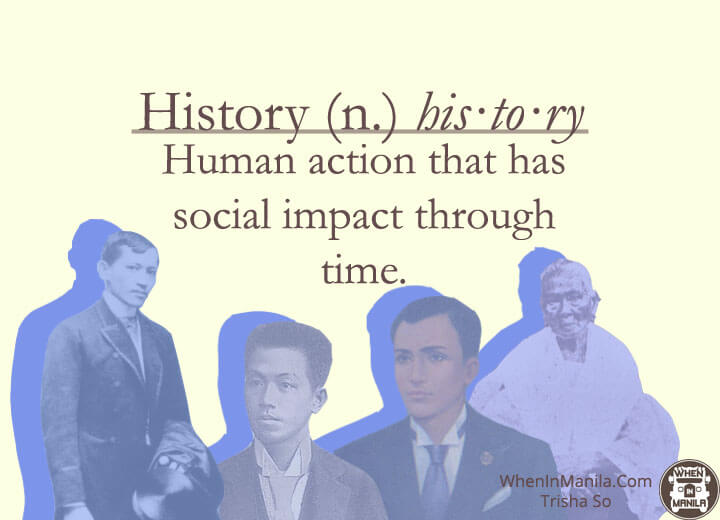Article by Andre Barbarona and Trisha So

Graphic by Trisha So
Have you ever thought of writing a book – maybe telling an epic tale that spans years and features great characters, amazing battles, or memorable events? It isn’t an easy task, and the task of creating a world and story demands absolute commitment and dedication. After all, the narrative must be engaging and the characters must be easy to empathize with.
One way to help with the process of writing is to use real history as the canvas for your story. Historical fiction is a rich genre that contains many possibilities for great stories; and despite the constraints of writing this kind of story, it can prove to be amazing when done correctly. We sat down with Palanca Award-winning playwright Dr. Joem Antonio, who gave us several tips on how to write good works of historical fiction.
5 Easy Tips for Writing Historical Fiction
Ask yourself: does my story have to be historical?
This is the first and most vital question to ask when writing a work with these characteristics. Does my story need the premise of being based on a true story or an actual event in history? Are these constraints something I am prepared to work around? How important will the historical elements be in relation to the story and characters? These are important things to consider before beginning the journey.
Try to find out what kind of historical fiction you’re trying to do.
Once you’ve decided that yes, my story could use history as its backdrop; you have to think of what kind of historical fiction you’ll write. To help us with this dilemma, Dr. Antonio defined several kinds of historical fiction. Period pieces are stories that use the setting of a particular historical period to develop a story (he recommends playing around with this kind, for starters!).
Conspiracy stories explain the context behind historical events, while alternate histories imagine how events would have ended if things happened differently. Reenactments recreate the conditions of an event and use fiction to voice the things that are unsaid (like what the participants felt or thought as the event took place). There’s a perfect kind of historical fiction for anyone, so go on and take your pick!
Know your definition of history.
Knowing the time period that your story takes place in can do wonders for how you imagine the world your characters live in. Being sure of how far in time the story is will help in thinking of details and descriptions that will add flavor to your story. This is especially important because a work of historical fiction requires you to…
Research, and research well.
This tip is what ensures that your piece is grounded in history. Great works like Memoirs of A Geisha and Les Miserables succeeded because of their usage of the setting to tell stories. Without the research and thorough knowledge of history, the entire exercise becomes pointless and you will not be able to utilize the setting to its fullest potential. Even conspiracies start from facts, and alternate histories branch off from actual events. Without that foundation, the piece might just as well be a fantasy. After all…
Trust the historical elements to tell the story.
Historical elements will guide the story. The social condition and other characteristics of the historical period will influence your characters and how you write them. Imagine reading Noli me Tangere without the Spanish, or Les Mis without the descriptions of the bloody streets of Paris. It just wouldn’t be as effective or as memorable. Dr. Antonio echoed the common saying that “truth is stranger than fiction”, and the facts can sometimes make for a far more engaging story than any kind of fantasy that we could conjure. We cannot discard those facts just to tell a good story if historical fiction is our goal, but we have to trust these details and fill in the gaps that they don’t tell us instead.
With all that being said, history truly does make for a good storyteller. Taking this into consideration already writes half of a great story. The other half comes from the determination and willingness to tell a striking story only you could possibly produce. With these tips, we hope that you will be able to write the next big history novel! If you need additional inspiration, we went to a few historical museums that you might find helpful to your writing process.




